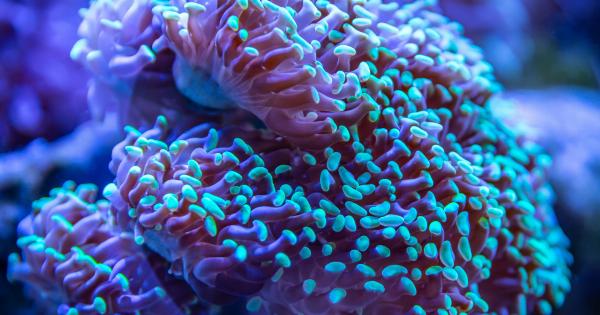The importance of staying hydrated is a topic that is frequently discussed and emphasized in various health and wellness communities. One commonly heard recommendation is that individuals should aim to drink at least 8 cups of water per day.
However, is this advice based on scientific evidence or simply a fictional rule that has been perpetuated over time? In this article, we will examine the origins of this recommendation, explore the research behind it, and ultimately determine whether the “8 cups of water a day” guideline is a fact or fiction.
The Origin of the “8 Cups of Water a Day” Recommendation
The notion of drinking 8 cups of water per day originated decades ago and has since become ingrained in popular culture. Many people believe that this recommendation stems from a scientific study or a renowned health organization.
However, this is not entirely accurate.
The origin of the “8 cups of water a day” recommendation can be traced back to a 1945 publication by the Food and Nutrition Board of the National Research Council.
The report stated that “a suitable allowance of water for adults is 2.5 liters daily,” which is approximately 8 cups. However, it is important to note that this statement included the phrase “a suitable allowance,” indicating that this value encompassed not only the consumption of water but also other fluids and even food.
Yet, over time, the distinction between water and other fluids became blurred, leading to the common misconception that individuals should drink exactly 8 cups of water each day.
The Role of Water in the Body
Before delving into the research surrounding water consumption, it is crucial to understand the essential role that water plays in our bodies. Water is fundamental for maintaining overall health and well-being.
1. Hydration: Water is vital for maintaining proper hydration, as it helps regulate body temperature, lubricate joints, and transport nutrients throughout the body.
2. Digestion: Water aids in digestion by facilitating the breakdown of food, absorption of nutrients, and the elimination of waste products.
3. Kidney Function: Water acts as a vital component in the filtration and excretion processes performed by the kidneys. Sufficient water intake helps prevent urinary tract infections and the formation of kidney stones.
4. Cognitive Function: Adequate hydration is crucial for optimal cognitive function, including memory, attention, and concentration.
5. Skin Health: Water assists in maintaining healthy skin by keeping it hydrated and promoting the elimination of toxins through sweat.
Exploring the Research
Several studies have examined the recommended daily water intake and its impact on various aspects of health.
1.
General Water Consumption: One study published in the American Journal of Physiology concluded that a general guideline of drinking eight 8-ounce glasses of water per day seems reasonable, especially when considering typical fluid losses and the overall daily water balance in the body.
2.
Individual Variations: Another study published in Nutrition Reviews indicated that water requirements can vary significantly between individuals based on factors such as body weight, climate, physical activity levels, and overall health.
3.
Body Hydration: Research published in the Journal of the American College of Nutrition revealed that consumption of water not only improves hydration but also positively influences overall dietary quality, particularly when it replaces other beverages high in sugar or caffeine.
Based on these studies, it is clear that the “8 cups of water a day” recommendation is a general guideline rather than a universal rule.
Tailoring Water Intake to Your Needs
Instead of rigidly adhering to an arbitrary water intake target, it is recommended to listen to your body’s thirst signals and modify your water intake accordingly.
Several factors should be considered when determining your individual hydration needs:.
1. Body Weight: In general, the larger the body size, the greater the water requirement. It is suggested to consume 30-35 milliliters of water per kilogram of body weight.
2. Physical Activity: Sweating during exercise leads to increased fluid loss, so it is essential to drink additional water to compensate for the loss.
3. Climate: Dry or hot climates increase the likelihood of dehydration, necessitating higher water intake.
4. Health Conditions: Certain medical conditions like kidney stones or urinary tract infections may require increased water intake to prevent their occurrence.
The Importance of Monitoring Hydration
Rather than fixating on a particular number of cups, monitoring your hydration status can be more beneficial. Here are some ways to assess your hydration:.
1. Urine Color: A pale-yellow color indicates adequate hydration, while a darker color suggests dehydration.
2. Thirst: Feeling thirsty is a clear sign that your body needs fluids, so don’t ignore it.
3. Energy Levels: If you frequently feel fatigued or lack energy, it may be a result of dehydration.
4. Skin Elasticity: Dehydrated skin may appear less elastic and show slower rebound when gently pinched.
The Verdict: Fact or Fiction?
The notion that individuals should consume precisely 8 cups of water per day can be considered fiction. A more accurate approach is to listen to your body’s needs, monitor your hydration status, and adjust your water intake accordingly.
While the general guideline of 8 cups of water per day can be a good starting point, it is important to remember that individual water requirements are highly variable.
Factors such as body weight, physical activity, climate, and health conditions all contribute to determining the appropriate amount of water to drink.
Ultimately, staying hydrated is crucial for overall health and well-being. Instead of fixating on a specific number, focus on maintaining a balanced and diverse fluid intake throughout the day.
Remember, water is not the only source of fluids, and a balanced diet consisting of fruits and vegetables can contribute to your hydration needs as well.






























